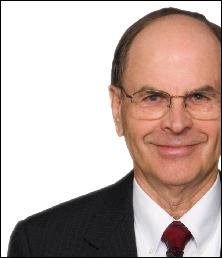 |
|
HOME | PROCLAMATION! MAGAZINE | DEVOTIONALS | STUDIES | LETTERS | ABOUT US | RELATED WEBSITES |
|
HOME / PROCLAMATION! MAGAZINE / 2008 / MARCH/APRIL / ASK THE PASTOR
MARCH / APRIL 2008
VOLUME 9, ISSUE 2
D E P A R T M E N T S
Ask the PASTOR
Law not abolished?
Dale Ratzlaff
Question: How do you explain Matthew 5:17–19? "Do not think that I came to abolish the Law or the Prophets; I did not come to abolish but to fulfill. For truly I say to you, until heaven and earth pass away, not the smallest letter or stroke shall pass from the Law until all is accomplished. Whoever then annuls one of the least of these commandments, and teaches others to do the same, shall be called least in the kingdom of heaven; but whoever keeps and teaches them, he shall be called great in the kingdom of heaven. For I say to you that unless your righteousness surpasses that of the scribes and Pharisees, you will not enter the kingdom of heaven."
Answer: Rather than giving you my conclusion, why not study this out for yourself? Find the biblical answers to the following:
1. In the context of Matthew, what does Matthew mean when he uses "Law". Look up the following verses which contain all the other passages in Matthew where the word "Law" is used. See Mt. 5:25; 7:12; 11:13; 12:5; 22:36, 40; 23:23.
a. How does Matthew use "Law"?
b. Does "Law" refer to the Ten Commandments or to the Torah?
2. In the context of Matthew, how is the word "fulfill" used? Read all the other passages in Matthew that use "fulfill" or "fulfilled". See Mt. 1:22; 2:15, 17, 23; 3:15; 4:14; 5:33; 8:17; 12:17; 13:14, 35; 21:4; 26:54; 56; 27:9.
a. How does Matthew use "fulfill"?
b. Does "fulfill" as used in Matthew usually refer to something Christ did?
c. Does "fulfill" as used in Matthew usually refer to something we are to keep doing?
3. Now go back to Matthew 5:17–19 and plug in your answers to the meaning of these two key words.
a. Assuming you found "Torah" to be the meaning of "Law", what do these verses teach? Note that Matthew mentions "Law and prophets".
b. Assuming that you found "fulfill" to be something that Christ did to fulfill Old Testament passages that in some way pointed forward to His ministry, what do these verses teach?
4. Which do you feel is the correct interpretation of these verses?
a. Christ is saying that we are not to take away even the least of the 613 commandments in the Torah. This means that we must not only keep the Sabbath, but also the statutes and judgments including the seven yearly festivals.
b. Christ is saying that nothing is to be taken away from the Torah until all is fulfilled. Since Matthew used the term "fulfill" to refer to the events in the life of Christ that fulfilled the Old Testament prophecies of the Messiah, his reference to teachers must be to the teachers of His day before the cross. At the cross, however, all the prophecies that pointed forward to the Messiah were fulfilled.
5. Can your conclusion be supported by passages outside of Matthew?
a. Did Jesus fulfill all the prophecies of the Messiah? See Jn. 12:38; 15:25; 17:12; 18:9, 32; 19:24, 28, 30; 36.
b. Does the Law continue after the cross? See Rom. 10:4; Gal, 3:17, 19, 23–25; Heb. 8:13.
6. Write a summary of what you believe Matthew 5:17–19 teaches.
![]()
Copyright 2008 Life Assurance Ministries, Inc., Glendale, Arizona, USA. All rights reserved. Revised September 24, 2008. Contact email: proclamation@gmail.com

Dale Ratzlaff